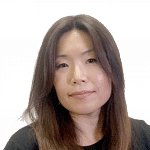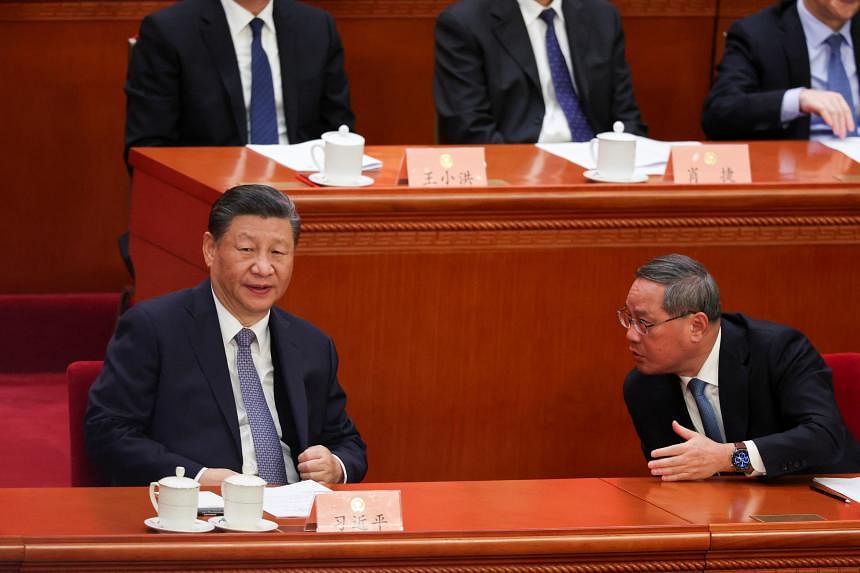BEIJING – When a Chinese journalist stood up to ask at an introductory press conference if the Premier will meet the press at the end of the annual legislature meetings, those familiar with China’s Two Sessions protocol thought it was a weird question.
The premier – from Li Peng more than three decades ago, to Zhu Rongji, Wen Jiabao, Li Keqiang and now Li Qiang – had always wrapped up the weeks-long conclave with a wide-ranging media briefing that provided a rare opportunity to hear the No. 2 man explain China’s policies.
Then came the bombshell that drew audible gasps from the 500 or more domestic and foreign journalists present at the press conference on March 4, held ahead of the opening of the annual Chinese legislature meetings.
Premier Li Qiang will not be speaking to the press; not this year nor for the rest of his five-year term, which ends in 2028.
The three usual reports that will be made public – the government work report, the budget and one by the economic planner – will already contain details that answer many burning questions.
Plus, there will be “more press conferences given by more ministers” throughout the duration of the Two Sessions, and opportunities for interviews with delegates, said the legislature’s spokesman Lou Qinjian.
For this reason, there will no longer be a press conference by the Premier, he said matter-of-factly.
The news quickly drew mostly questions of “but why?” on Chinese microblogging site Weibo, but within minutes, the comment sections of news outlets were shut down.
The decision to break this long-held tradition could well have been taken only recently. Organisers of the twin parliamentary sessions involving the legislature and top political advisory body were, before Chinese New Year, still sounding out journalists on what they were keen to hear the Premier speak on.
Delegates expressed surprise that the premier press conference was cancelled, including Mr Xie Feng, China’s Ambassador to the US, when he was stopped by the media outside the Great Hall of the People on March 4.
If China’s bureaucracy was not already opaque enough, that this rare access to the top echelons of power has now been taken away has plunged the party-state into an even bigger black hole, lamented international observers.
Since then Premier Li Peng met more than 400 domestic and foreign journalists and answered their questions in 1988, the premier’s news conference has been the high point of every Two Sessions, or lianghui.
It was a great forum for the premier to articulate policies and shed some light on official thinking, woo foreign investors, and also communicate with the Chinese populace at the same time.
The Chinese, too, were often proud to see their prime minister addressing questions directly from foreign correspondents from all regions of the world, and expressing China’s point of view.
For the pundits and market watchers, the briefing – which had run to two hours or more during previous premiers’ terms – provided clues to the government’s priorities and path, especially over the state of the economy.
If business confidence was not already shot, this move might cause it to plunge even more.
Adding to the surprise was the fact that organisers had granted greater media access this year after four years of restrictions on coverage under China’s zero-Covid controls. As many as 3,000 domestic and foreign journalists had registered to attend this year’s Two Sessions, they had said.
Yet this break from convention also underlines the diminishing powers of the State Council, or the government, as President Xi Jinping reforms the system to put the Communist Party of China above the state.
In 2023, Beijing carried out a major overhaul of the bureaucracy by empowering party apparatuses to make more decisions while the State Council executes them.
Now, amendments to an organic law, which governs the State Council and has not been updated since it was promulgated in 1982, will be reviewed this week and eventually passed.
Notably, the draft text makes it very clear that the State Council is an administrative body that upholds the leadership of the Communist Party, while the 1982 version, released when the Chinese leadership then was advocating the separation of party and government functions, did not have a single mention of the party.
“The party and the state are no longer parallel systems.
“Now, by design, Xi takes care of everything and simply authorises the premier to take care of very specific areas,” said Associate Professor Alfred Wu of the Lee Kuan Yew School of Public Policy.
“I’m always cautious about calling Li Qiang the No. 2 because he’s like a secretary to Xi.”


